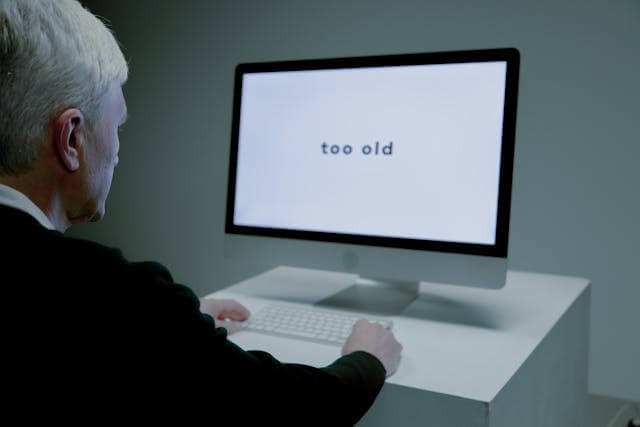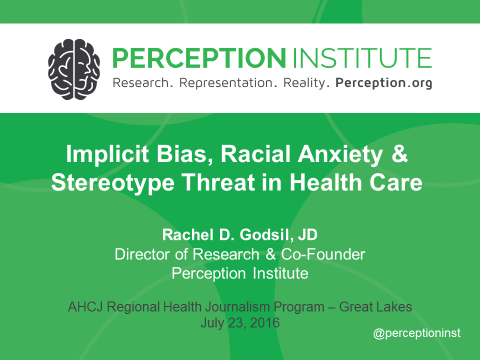Stop Ageism: A Call for Action; It’s one of the last socially acceptable forms of prejudice, and it needs to come to an end in society and this presidential campaign.
By Dr. Gail C. Christopher, Washington Monthly
If a presidential hopeful decried their opponent because they were LGBTQ+, Latino, African American, or
had a disability, voices of outrage would denounce it immediately.
Movements for the rights and equality of these previously marginalized groups have generated advocates who
protest in the face of mistreatment and injustice against these groups. Where are the voices against ageism?
Ageism is a bias against, discrimination against, or bullying of individuals and groups based on their age
Where are the advocates standing up for the rights and dignity of older and elderly Americans? Mass media
and commercialism have generated youth idolatry in the United States, perhaps minimizing the possibility of
justice, fairness, kindness, and respect for the elderly. Stereotypes, name-calling, cruelty, and disregard are
accepted as common practice.
This behavior and this language are ageism and need to be called out as such. Not all of us will ever identify
as gay or immigrant, or Black or Latino, or as a gender identity that we were not born as, but all of us (if we
survive) will become older. According to the Administration for Community Living, people over 65 are the
fastest-growing demographic in this country. It is time for us to change our attitudes, beliefs, and behaviors regarding this expanding segment of the population.
This is the first time in public health and medical history that we’ve had the opportunity to study large
numbers of elderly people over long periods or to conduct what’s known as longitudinal studies because more
people are living longer. One thing is clear: people who have positive attitudes and expectations about aging
are less likely to manifest mental and physical degeneration. Evidence would suggest that our older elected
officials have positive attitudes about aging and can still lead well into their later years.
Science now enables us to understand how the body and brain age in ways we’ve never known before. For
example, how the brain remembers actually changes when we get into our 70s and 80s—and for some, even
sooner. We have less of a need for specific dates and names of people and more of a need for a broader
perception and understanding, so we use the myriad of neuronal connections that have developed over the
decades. We remember more holistically. There’s more memory change than memory loss for healthy people
within older populations. Author Ashton Applewhite has written a powerful call to action for eliminating
ageism entitled This Chair Rocks: A Manifesto Against Ageism—a book that should be required reading
during this election cycle. The author has compiled data from studies that help to counter the tropes and
stereotypes that undergird ageism as well as unfair attacks based on ignorance about the aging process.
Younger populations—Millennials and Gen-Z—may have little understanding of the nuances and benefits
associated with healthy aging. As I watch young reporters hurl insulting questions at our nation’s
commanderin-chief during a recent press conference, I realize I couldn’t be silent any longer. I would urge more of us to call out ageism and not tolerate it. President Joe Biden shepherded this nation through the final years of a
devastating pandemic while securing the economy safely and soundly. He leveraged wisdom gained through
decades of public service to accomplish more than many of his younger and less experienced predecessors.
Some of the top economic accomplishments of the Biden-Harris administration include lowering the costs of
families’ everyday expenses through the Inflation Reduction Act, rescuing the economy, changing the course
of the pandemic through the American Rescue Plan, and reaching a record number of people working.
Other historic accomplishments include the first meaningful gun violence reduction legislation in 30 years, the
confirmation of Supreme Court Justice Ketanji Brown Jackson and federal Judges of diverse backgrounds,
and, through the PACT Act, an expansion of benefits and services veterans exposed to toxins. In terms of
results for the American people, the Biden-Harris Administration has had two of the strongest years of job
growth in history, aided more than 30 million borrowers who stand to benefit from student debt relief, created
nearly 11 million jobs since 2021, and invested in infrastructure in all 50 states, the District of Columbia, U.S.
territories, and throughout tribal nations.
In fairness, the Trump White House archives summarized the previous administration’s accomplishments: it
created 7 million new jobs, rebuilt and invested in rural America, passed $3.2 trillion in historic tax relief, and
reformed the tax code through the Tax Cuts and Jobs Act. Other historic accomplishments include the
unemployment rate reaching 3.5 percent and modernizing the National Environmental Policy Act for the first
time in over 40 years. For the first time in nearly 70 years, the U.S. became a net energy exporter.
Elderly presidents led both of these administrations.
The stamina, courage, and patriotism required to be the president deserve respect and should not be subjected
to any isms—racism, sexism, and certainly not ageism. The world’s complex challenges require experience
and must be addressed with wisdom, both of which are acquired through decades of dedication and public
service. The idiocy of ageism should not taint these accomplishments and attributes. Evolving democracy
needs wisdom at the helm.
Their personal physician or healthcare provider best determines the health and fitness of any person in a
leadership position. We cannot condone armchair diagnoses based on biased perceptions about the dynamics
of health and aging. I have spent my career leading efforts to eliminate biases in its many forms. Related
research suggests that bias against the elderly is the hardest to eliminate. That doesn’t mean we shouldn’t try.
The 2024 presidential election cycle invites us to call on our better angels and demonstrate more compassion
and regard for ourselves and our future selves, recognizing that we will all become elderly at some point



